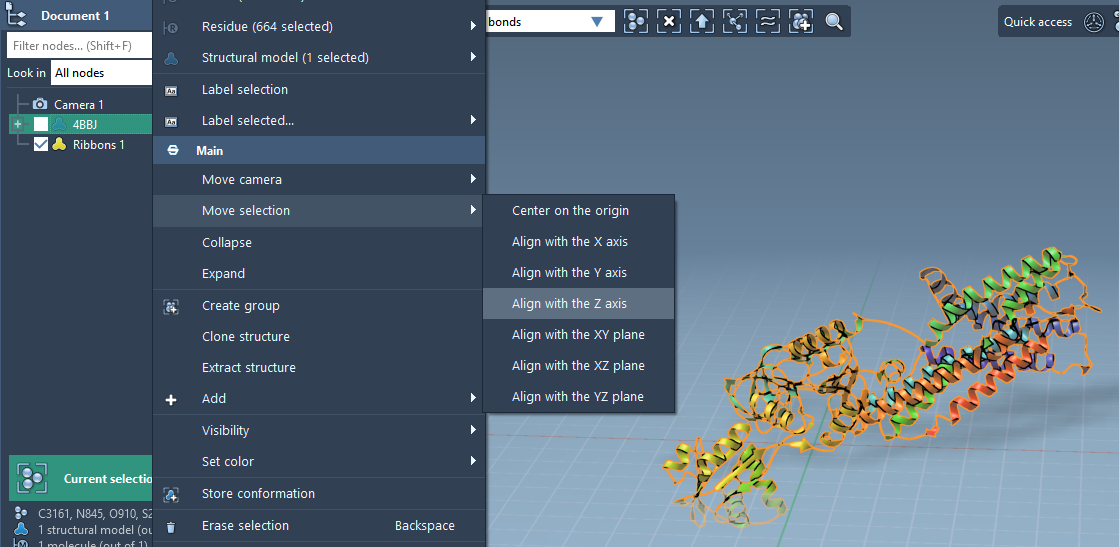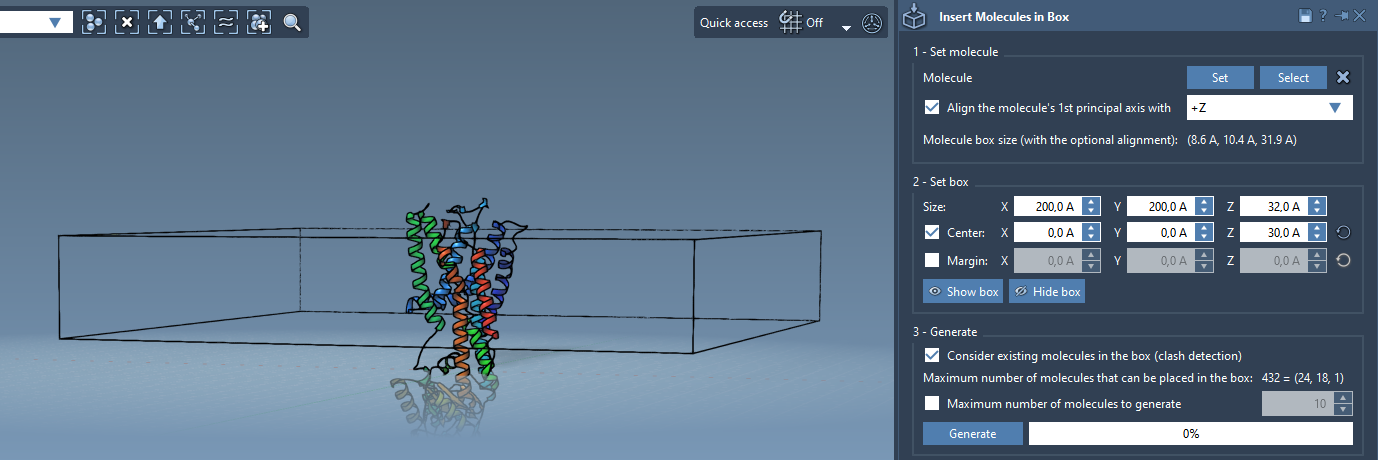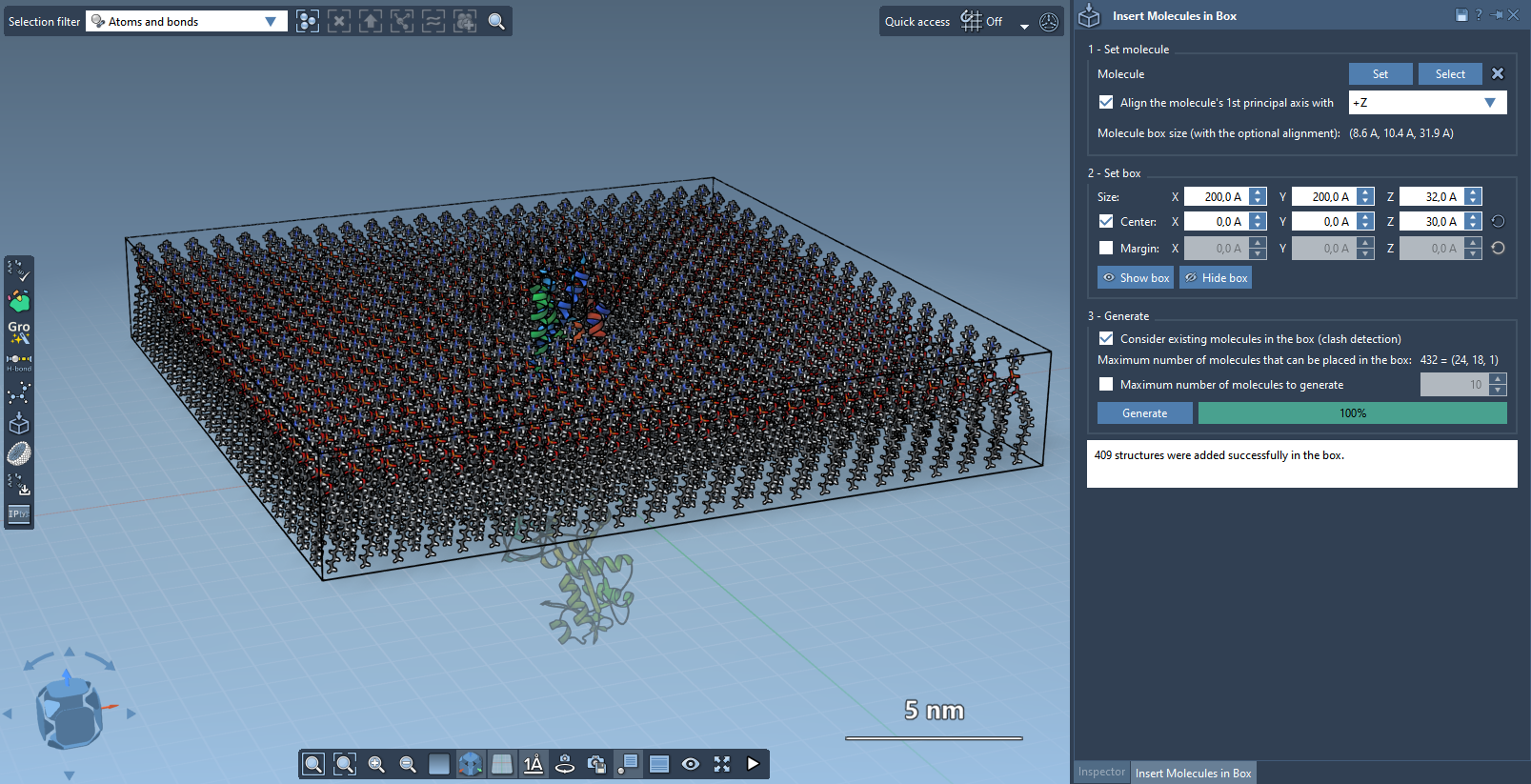Modeling membrane proteins realistically often hinges on embedding them within a lipid bilayer. But placing lipids manually around a protein system can be time-consuming, potentially error-prone, and quite repetitive for simulations involving different lipid types or membrane compositions. Fortunately, Molecular Box Builder in SAMSON makes this process reproducible and fast.
In this blog post, we explore how to use Molecular Box Builder to construct a lipid layer—or even a full bilayer—around your protein of interest. No scripting required, just a few structured clicks.
Why Create a Lipid Bilayer?
Many biologically active proteins are membrane-bound. Simulating them in their native-like environment (surrounded by lipids and embedded in bilayers) is important when studying function, stability, and interactions. Getting the initial model right is the foundation for any meaningful simulation.
Aligning the Protein
To prepare for building the lipid structure, we begin by aligning the protein along the Z axis in SAMSON:
- Right-click the protein in the Document view.
- Select Move selection > Align with Z axis.
- Then choose Move selection > Center on the origin.
This ensures consistent orientation and placement of lipid layers.

Choosing and Positioning Lipids
Import a single lipid molecule (e.g., POPC or another of your choice) and align it similarly:
- Select the lipid and click Set in the Molecular Box Builder app.
- In the orientation settings, align its principal axis along
+Z.
This step makes sure the lipids will be stacked in the same direction when generating a monolayer.

Defining the Lipid Box
The next step is to define the 3D box that will contain the lipid layer:
- Center the box around the protein (check the Center box).
- Adjust dimensions to accommodate a single lipid layer without overlapping with the protein.
- Set a positive or negative margin if needed to control lipid packing density.

Generating the Lipid Layer
Simply click Generate, but make sure to enable Consider existing molecules in the box. This ensures lipids are placed only in free volume around the protein.
Seconds later, you’ll have a lipid monolayer arranged around your protein:

Creating a Bilayer
If you need a full bilayer, repeat the process for the complementary layer:
- Generate the first layer with
+Zalignment. - Move the box slightly along the Z-axis.
- Then generate a second layer using the same lipid, now aligned with
-Z.
This gives you a flexible and reproducible way to create asymmetric or symmetric bilayers, with complete control over spacing, orientation, and composition.
Conclusion
Integrating membrane proteins into lipid layers doesn’t have to be tedious. SAMSON’s Molecular Box Builder provides an interactive, visual way to build complex pre-simulation systems in a matter of minutes. Whether you’re modeling transporters, receptors, or membrane-bound enzymes, this tool can help streamline the preparation stage of your simulations.
Learn more in the full Molecular Box Builder documentation.
SAMSON and all SAMSON Extensions are free for non-commercial use. You can download SAMSON here.





